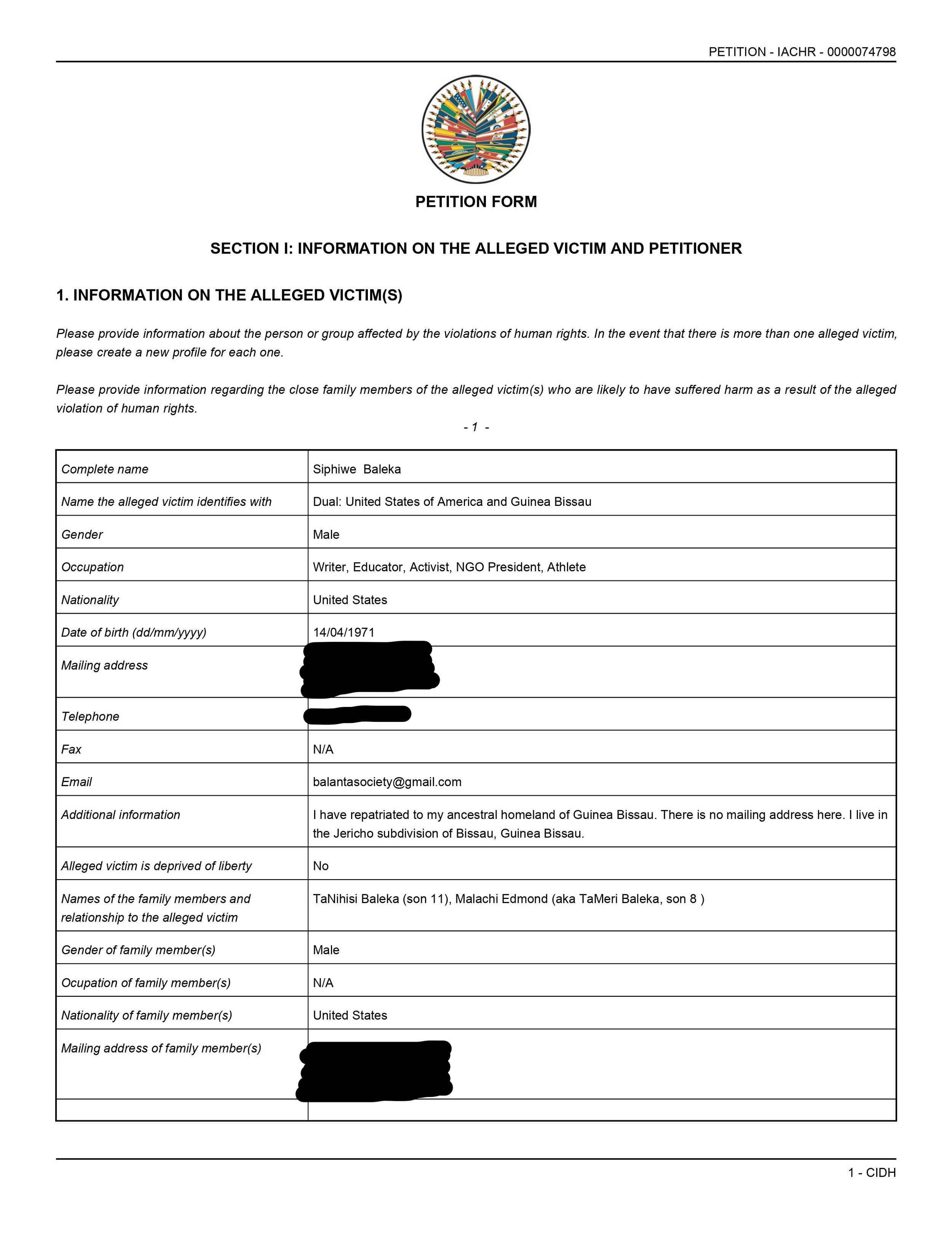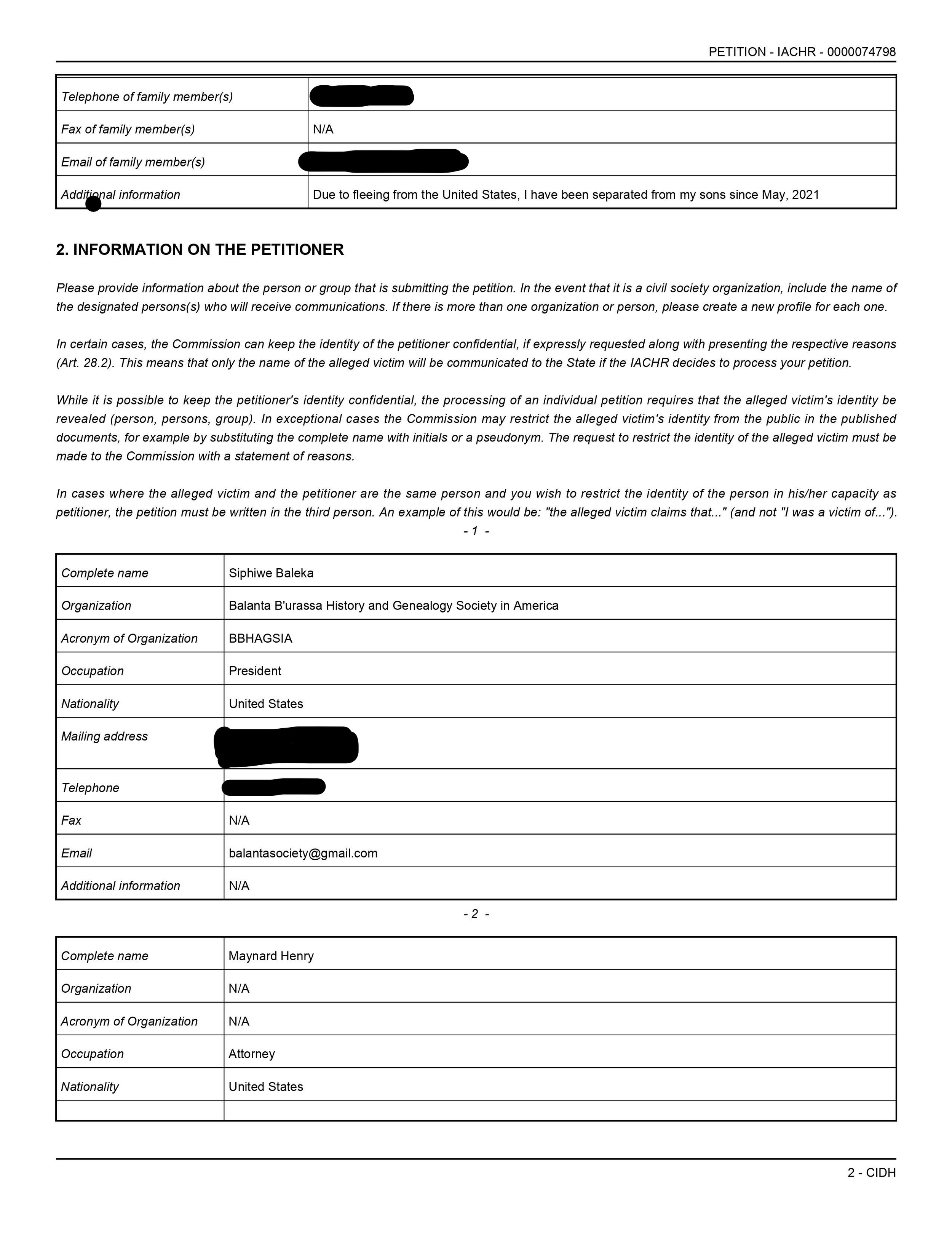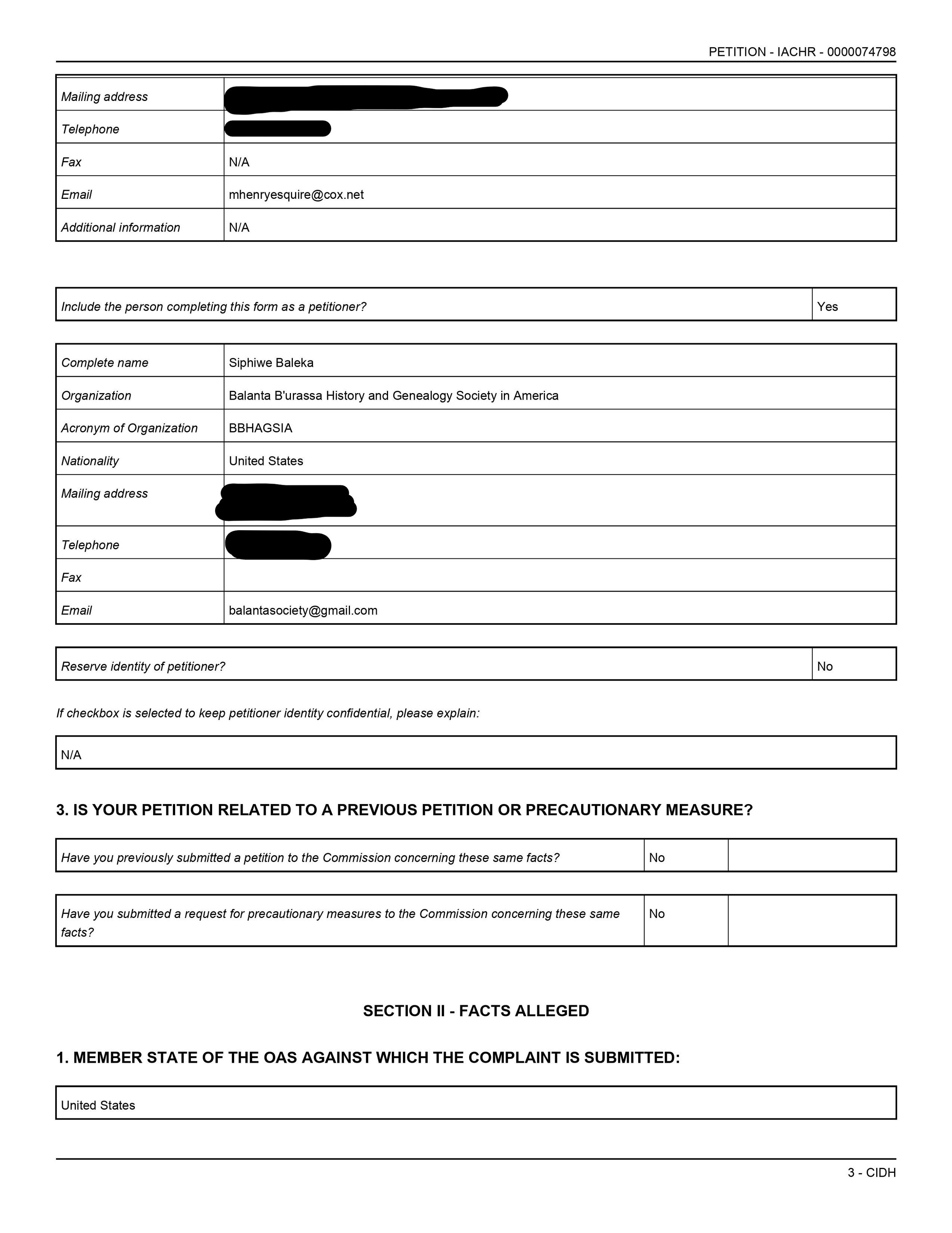On July 19, Kaitlyn Kennedy of tag24.com published the article SIPHIWE BALEKA'S LANDMARK PETITION SEEKING REPARATIONS FOR US ETHNOCIDE DISMISSED stating,
“Celebrated athlete and activist Siphiwe Baleka's historic reparations case has been dismissed by the Inter-American Commission on Human Rights (IACHR) without explanation.
In January, Baleka filed a groundbreaking case before the IACHR seeking redress for human rights violations perpetrated against him by the US. Baleka's petition, which combined genealogical findings with the latest in epigenetic research, accused the US government of state-sanctioned ethnocide, referring to the deliberate and systematic destruction of cultures.
A dual citizen of the US and Guinea-Bissau, Baleka traced a direct line between the trafficking and enslavement of his Balanta ancestor, Brassa Nchabra, prior to the American Revolution and the 2020 police shooting of his cousin, Jacob Blake, in Kenosha, Wisconsin.
Hoping to set a precedent for other African Americans to follow, the Balanta B’urassa History and Genealogy Society in America founder was seeking not only financial compensation for the damage done to his family, but also the transfer of at least 80 acres of land due to his ancestors Jack and Yancey Blake following Emancipation. He further called on the US to facilitate his family's repatriation efforts by redirecting resources to Guinea-Bissau for the damages wrought through colonialism. . . .
"What happens when I have exhausted every single jurisdiction?" Baleka asked. "There is no interplanetary, galactic court that I can go to and say, 'Hey look, the international justice system of planet Earth isn't providing justice, so now I need to appeal to universal alien forces.'"
"The only forum open to me was this Inter-American Commission on Human Rights, and now I see they don't respect me. I can't get justice there, so what am I supposed to do as a human being educated about my rights and how they've been violated for eight generations of my family?". . .
But Baleka also insists that international law and treaties guarantee the right to armed struggle if all other efforts to secure freedom from colonial oppression fail. Continued rejections, he warned, may leave him with little choice other than to take justice into his own hands.
"I want my day in court, and if you don't give it to me, you are literally forcing and pushing me to become a freedom fighter, which we understand from your definition, you're going to call me a 'terrorist,'" he said of the US government and other Western institutions.”
The day after his petition was dismissed, Baleka attended a meeting of the U.S. State Department for its ICCPR July 12 Civil Society Consultation. As requested, Siphiwe Baleka submitted the following questions to the U.S. State Department prior to the meeting:
Q1. What remedies are available to the Balanta people in America for redress for ethnocide?
Q2. Will the government of the United States of America engage in negotiations with the Balanta people, the government of the Republic of Guinea Bissau, the Vatican, and the Government of Portugal, under the Geneva Convention, for the final “release and repatriation” of the descendants of the Balanta, Fulani, Mandinga, Papel, Manjaco, Beafada, Brame (Mancanha), Bijago, Djola (Felupe), Mansoaca prisoners of war who were trafficked to and enslaved in America?
Q3. How can the Balanta B’urassa History and Genealogy Society in America engage in the process of receiving reparations for the crimes of slavery and ethnocide?
Although he was invited to the meeting and his questions were pre-approved, the U.S. State Department did not allow Mr. Baleka to speak and did not answer any of the questions.





























